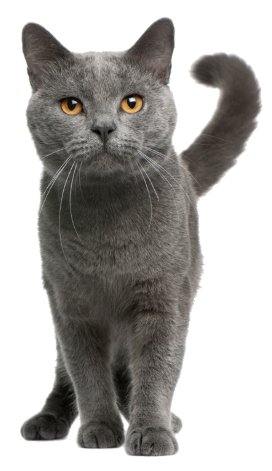The Lion in Your Living Room
This page is a draft and is under active development.
( \newcommand{\kernel}{\mathrm{null}\,}\)
The Lion in Your Living Room (Netflix)
Before you watch the video, tell me a little about your experience with cats:
A) Do you have a cat (or have you ever had a cat)? _______
B) What do you like about cats? _____________________________________
C) What do you not like about cats? _________________________________
D) Pick a name for the cat pictured → ____________________________
___ 1. The gait of a cat evolved to improve a cat’s:
- running speed
- stealth
- jump
___ 2. High Rise Syndrome occurs when cats:
- get lost in buildings
- get stuck in trees
- fall off balconies
___ 3. What feature of a cat’s ears help them hunt prey?
- they swivel
- they can hear ultrasonic squeeks
- both of these
___ 4. The vomeronasal organ is used when:
- sniffing other cats
- hunting prey
- finding mates
___ 5. What area on the eye is reflective?
- pupil
- tapetum lucidum
- iris
___ 6. Whiskers help cats:
- move in tight spaces
- purr
- balance on tree limbs
___ 7. Domestic cats meow to
- scare predators
- find prey
- get attention
___ 8. Cats make a “chattering” noise during what activity?
- eating
- hunting
- fighting
___ 9. The solicitation purr of cats is most similar to what?
- baby’s crying
- dog’s whining
- traffic
___ 10. A cat that has never known human companionship is called:
- domesticated
- adapted
- feral
___ 11. A straight-up tail communicates what?
- friendly intentions
- a warning
- hunger
___ 12. Felis silvestris lybica is a type of wildcat thought to be:
- nearly extinct
- the largest cat
- the ancestor of domestic cats
___ 13. What likely brought cats to human settlements?
- other cats
- food
- rats
___ 14. Orange cats were more common in areas with:
- Vikings
- farmers
- deserts
___ 15. What gives cats bad press?
- they injure babies
- they carry disease
- they kill wildlife
Careers that involve cats: Veterinarian | Cat Trainer | Shelter Worker | Cat Breeder

